Our Blog
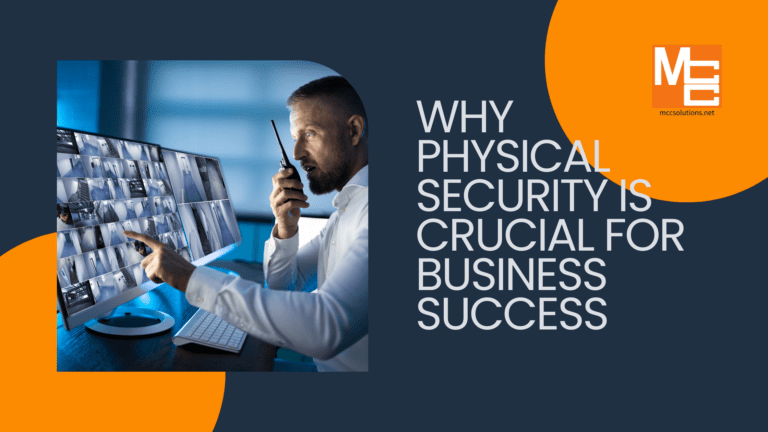
Why Physical Security is Crucial for Business Success
An In-Depth Report on Primary Physical Security Challenges Faced by Businesses Today
Table of Contents
What is Physical Security?
Physical security refers to the measures taken to protect a company’s physical assets from unauthorized access, theft, vandalism, and other types of damage. It involves the deployment of various technologies and strategies aimed at safeguarding buildings, equipment, personnel, and confidential information. Effective physical security measures help prevent unauthorized access, theft, vandalism, and other security threats that can disrupt operations and lead to significant financial losses. As businesses increasingly face sophisticated threats, maintaining robust physical security systems is essential for safeguarding their operations, reputation, and bottom line.
Why is Physical Security Important for Businesses?
Safeguarding Business Assets
Business assets, including equipment, inventory, and sensitive data, are pivotal for the survival and competitive edge of any company. Unauthorized access or damage to these assets can lead to significant financial loss and operational disruptions. Effective physical security ensures that only authorized personnel have access to critical areas, thereby minimizing the risk of theft and vandalism.
Protecting Confidential Information
Inadequate physical security can lead to breaches that compromise confidential information. This not only affects a company’s reputation but can also result in legal repercussions and financial penalties. By implementing stringent physical security measures, businesses can protect their intellectual property and sensitive data from unauthorized access.
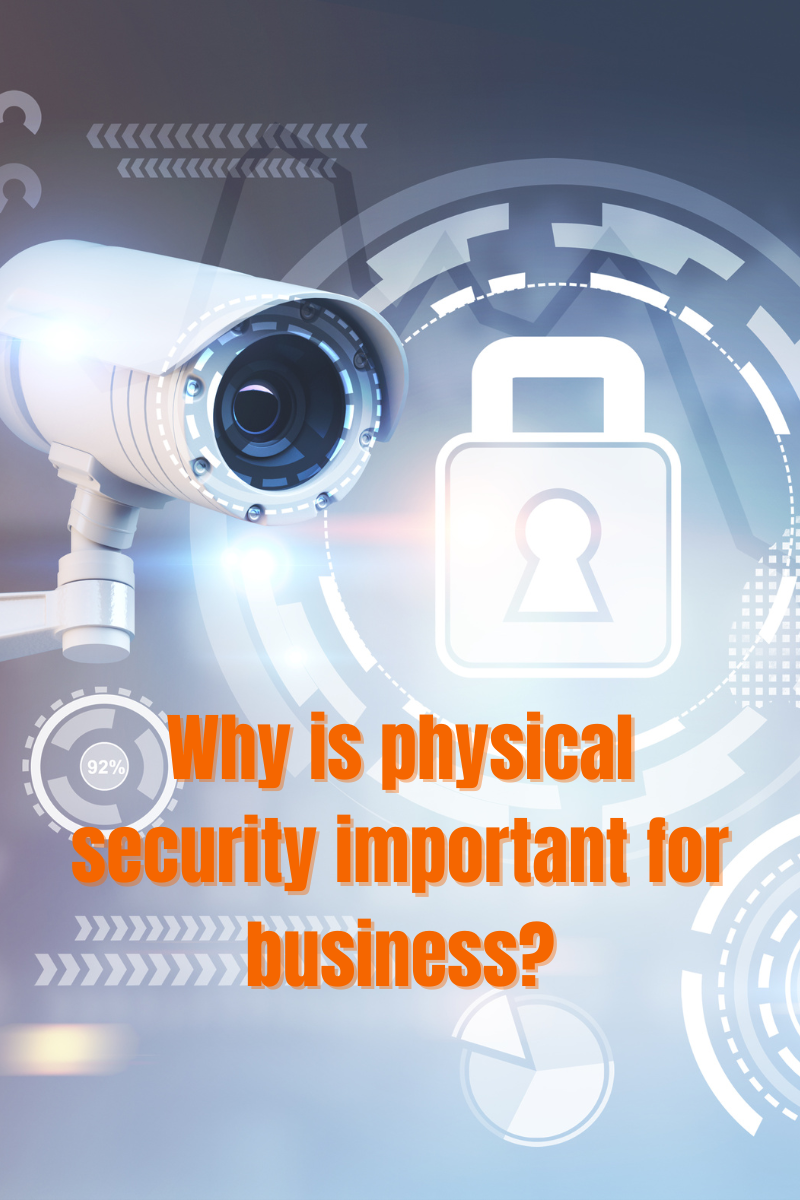
Ensuring Employee Safety
The safety of employees is paramount for any business. Physical security measures such as alarm systems and surveillance cameras help create a secure working environment, reducing the risk of workplace violence and ensuring the well-being of staff members.
Vandalism Protection
Vandalism not only results in financial loss but also affects the aesthetic appeal of business premises. Graffiti, broken windows, and other forms of property damage can be costly to repair and can tarnish a company’s image. Effective physical security measures help protect the premises from such destructive acts.
Primary Physical Security Challenges Faced by Businesses
- Limited Access Control – Limited access control refers to the inability to effectively restrict access to sensitive areas within the business premises, which can lead to unauthorized entry, theft, and potential security breaches. According to a survey by Security Magazine, 43% of businesses reported experiencing unauthorized access incidents in the past year.
- Inadequate Video Security – Research by the Security Industry Association found that businesses with video surveillance systems are 67% more effective in deterring security incidents. Inadequate video security systems result in gaps in surveillance coverage, making it challenging to monitor and respond to security incidents effectively.
- Lack of Real-Time Alerts – The absence of real-time alerts can delay response times to security threats, allowing incidents to escalate before appropriate action can be taken. A study by ASIS International revealed that 60% of businesses cited delayed response times as a significant challenge in managing security incidents.
- Inadequate or Vulnerable Outdoor Security – Vulnerable outdoors security areas, such as parking lots or loading docks, are susceptible to criminal activities like theft, vandalism, or unauthorized access.
- Insufficient Lighting Systems – Insufficient lighting in and around business premises creates blind spots and conceals potential security threats, making it easier for criminals to operate undetected. A study by the Lighting Research Center found that well-lit areas experienced a 39% decrease in criminal activity compared to poorly lit areas.
- Lack of Physical Barriers – The absence of physical barriers, such as fences, bollards, or access control gates, makes it easier for unauthorized individuals to breach security perimeters. The Department of Homeland Security reported a 20% increase in vehicle ramming incidents targeting businesses without adequate physical barriers.
- Unsecured Entry Points – Unsecured entry points, such as doors, windows, or loading docks, pose a significant risk of unauthorized access, burglary, and forced entry. The National Retail Federation estimated that 36% of retail businesses experienced break-ins through unsecured entry points, resulting in significant financial losses.
- Lack of Employee Training – Insufficient training on security protocols and procedures can result in employees unknowingly compromising physical security measures or failing to respond effectively to security incidents.
- Neglected Maintenance of Security Systems – The Ponemon Institute reported that 45% of businesses experienced security incidents due to outdated or poorly maintained security systems. Neglected maintenance of security systems, such as alarms, cameras, or access control devices, can lead to equipment failures, false alarms, or gaps in security coverage.
- Inadequate Emergency Response Plans – The Federal Emergency Management Agency (FEMA) found that 60% of businesses without formal emergency response plans experienced significant challenges during crises. Inadequate emergency response plans can result in confusion, delays, or ineffective coordination during security incidents or crises, compromising the safety of employees and customers.
Effective Measures to Enhance Physical Security
To address these varied threats, businesses can implement a range of commercial security solutions. These solutions not only provide protection but also enhance overall operational efficiency. Let’s explore some key types of security measures:
Access control systems regulate who can enter specific areas within a business premise. These systems use methods such as key cards, biometric scanners, and PIN codes to grant or restrict access.
Key Features
- Restrict Access to Sensitive Areas
- Audit logs of entry/exit times
- Manage access rights by user or group
- Reduce the need for traditional keys
- Manage access remotely
- Real-time alerts
- Emergency lockdown
Closed-circuit television (CCTV) cameras are a crucial component of modern business security. They provide real-time surveillance and recording capabilities, enabling businesses to monitor activities and gather evidence if incidents occur.
Key Features
- Deter criminal activity
- Evidence collection for authorities
- Remote monitoring
- Advanced video analytics
- Real-time alerts for unusual activity
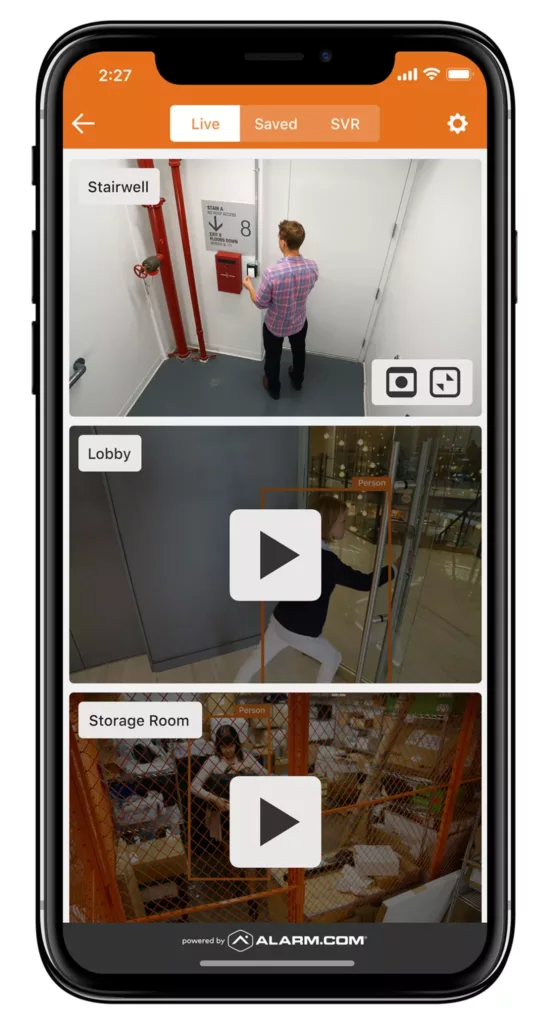
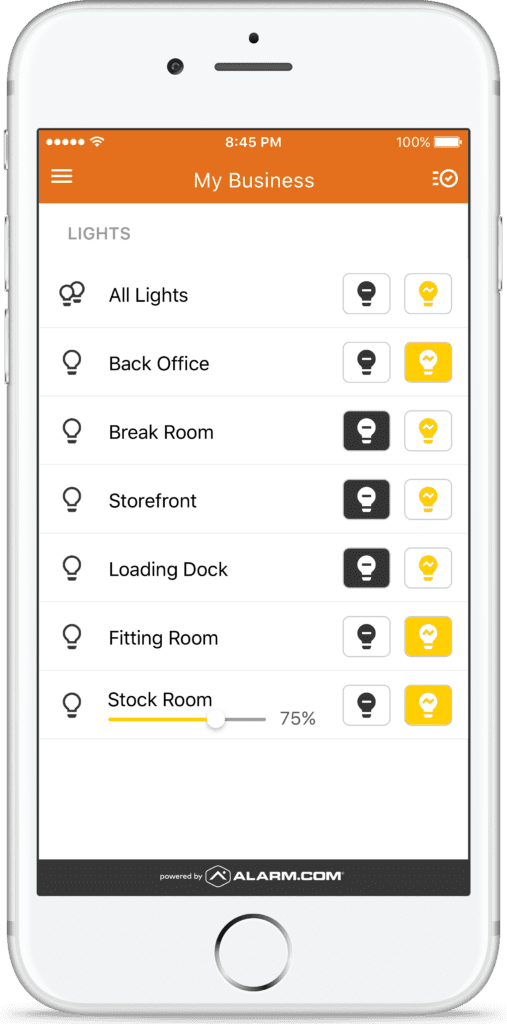
Alarm systems are essential for detecting and responding to unauthorized access and other security breaches. These systems alert business owners and authorities when a breach occurs, enabling a swift response to mitigate potential damage.
Key Features
- Immediate detection of security breaches
- Quick notifications to authorities
- 24/7 monitoring
- Intrusion detection for doors/windows
- Peace of Mind
A comprehensive security plan integrates various security measures into a cohesive strategy tailored to a business’s specific needs. This includes regular risk assessments, employee training, and the deployment of advanced security technologies.
Key Features
- Integrated systems working together for full protection
- Holisitc approach to security
- Regular updates and improvements to security protocols
- Increased awareness and preparedness among employees
- Peace of Mind
Physical security is a cornerstone of business safety and operational continuity. By investing in comprehensive security systems, CCTV cameras, and access control solutions, businesses can protect their assets, employees, and sensitive information from various threats. Implementing these measures not only enhances security but also contributes to overall business efficiency and peace of mind. For businesses looking to stay competitive and secure, prioritizing physical security is not just an option but a necessity. Consider enhancing your security infrastructure today to safeguard your business for the future. Read our Ultimate Guide to Business Security to learn more.
When was your last security audit?
Let our security team help find the weak spots in your business security and fix them. Request your free audit today.
Don’t forget to share!
Looking for something specific?
Want the latest news in your inbox?
Categories
Industries
Solutions
MCC News
How To Assess Your Business Technology and Identify Gaps
Conducting a business technology assessment is critical for ensuring your company operates efficiently, securely, and cost-effectively. Outdated or inefficient systems…
Comprehensive Guide on Church Technology
Churches are increasingly embracing technology to enhance worship experiences and improve operational efficiencies, recognizing the importance of staying relevant in…
6 Cost-Saving Technology Ideas for Businesses
Here are six cost-saving technology examples that can help your business thrive, from advanced software solutions that automate routine tasks…

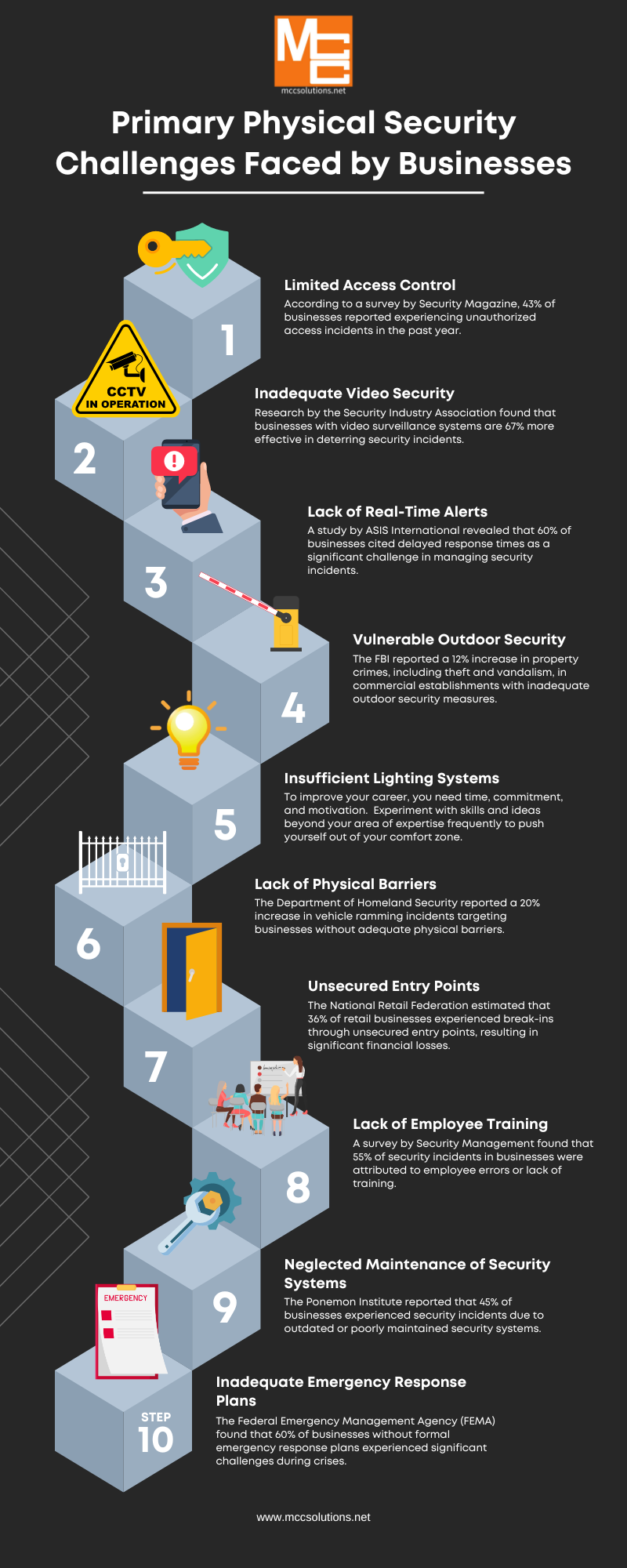
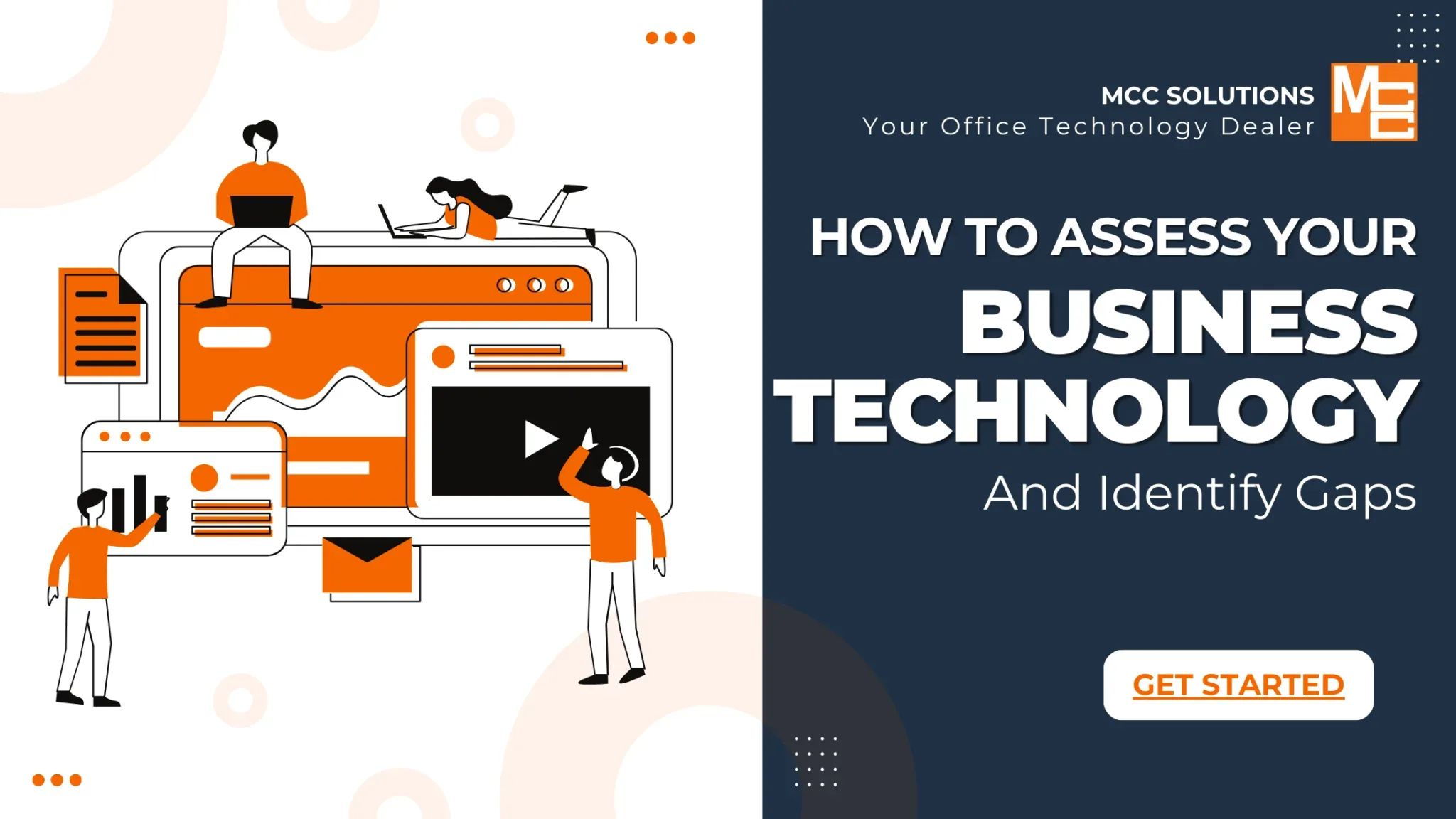
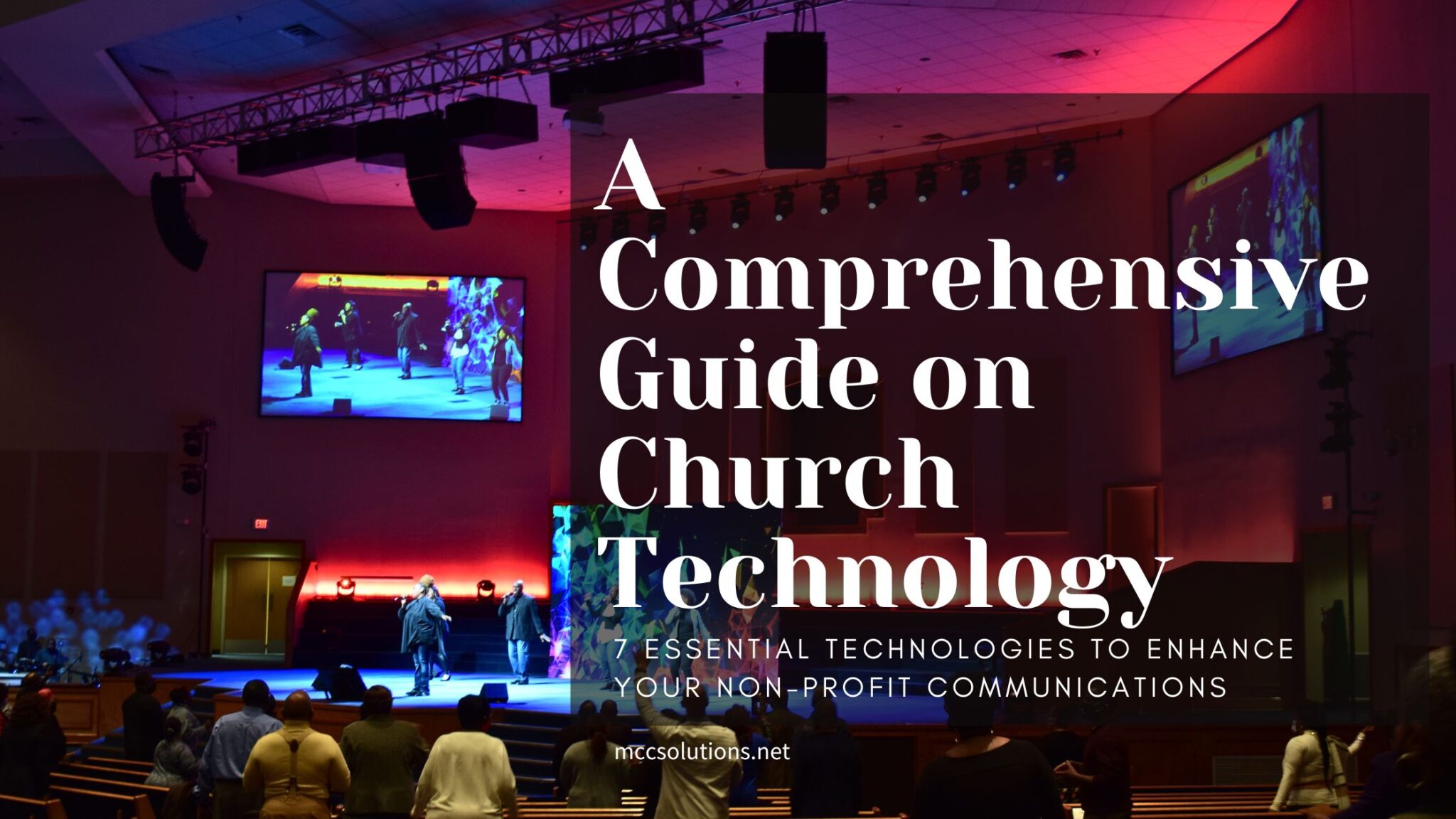
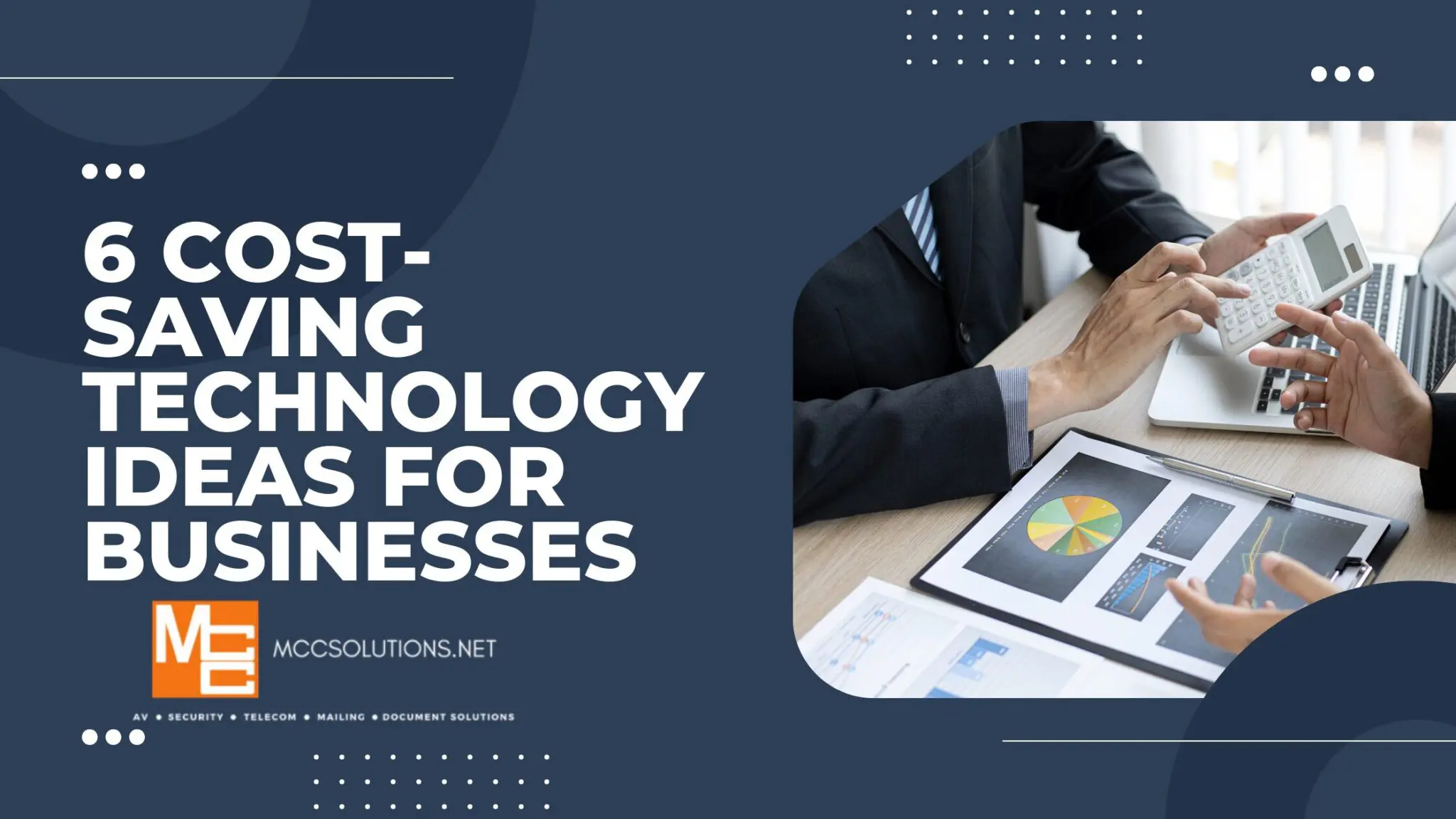

3 Responses